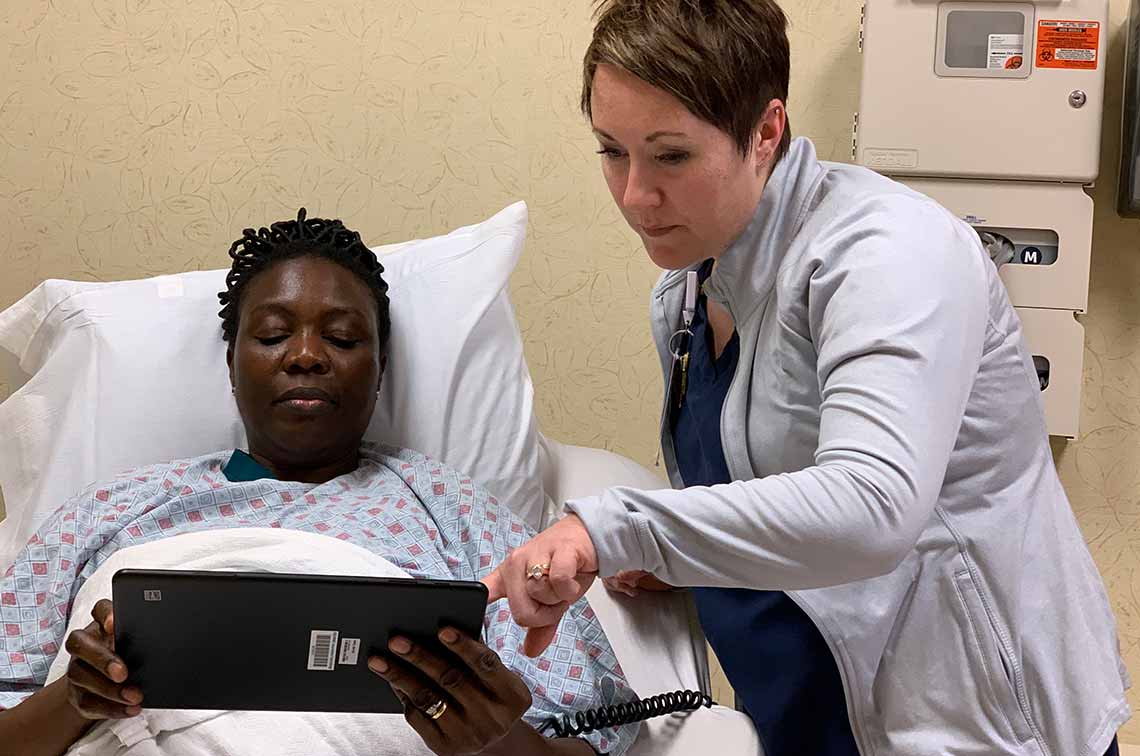
Discover how we're providing tools to improve access to health care.
June 22, 2018
At The Ohio State University Comprehensive Cancer Center — Arthur G. James Cancer Hospital and Richard J. Solove Research Institute (OSUCCC — James), cancer is never routine. Our oncologists and cancer researchers are developing prevention strategies and treatments that target each person's specific cancer.
Thanks to a genetic screening method tested at the OSUCCC — James, thousands could receive the diagnoses needed to treat their cancer more effectively than ever.
The innovation could also uncover genetic information in time to help doctors prevent some cancers from developing at all.
Researchers at the OSUCCC — James tested a one-step process for determining whether someone has a gene mutation that causes Lynch syndrome, an inherited disorder that dramatically increases the likelihood of developing colon cancer, uterine cancer and several other types of cancer.
"Identifying Lynch syndrome allows us to save lives by beginning more frequent cancer screenings and prevention options for those who have the gene mutation," says Heather Hampel, a genetic counselor at the OSUCCC — James.
"Correctly identifying Lynch syndrome is critical because the associated cancers are extremely preventable. And these patients likely have children, siblings or other family members who have this genetic disorder and are unaware of their cancer risks."
The new test looks for Lynch syndrome while simultaneously screening for other mutations associated with cancer. These additional mutations can help determine which therapy might work best for each particular cancer. The test also produces results faster and more accurately than the current tumor screening process, which can involve up to six tests.
The OSUCCC – James study used gene sequencing to test 419 unselected tumor samples, in addition to 46 tumors from patients known to have Lynch syndrome, and accurately identified 100% of the Lynch syndrome cases. The previous standard screening tests for Lynch syndrome identified only 90 percent of the cases.
“Thanks to a genetic screening method tested at the OSUCCC — James, thousands could receive the diagnoses needed to treat their cancer more effectively than ever. The innovation could also uncover genetic information in time to help doctors prevent some cancers from developing at all.” Click to tweet this story
Gathering data for every gene in a tumor helps cancer treatment teams target a patient's cancer more precisely. And if this screening becomes standard among health care providers, its benefits will reach far beyond colon cancer treatment.
"This test is really the future for treating not just colon cancer, but likely all cancers," Hampel says.
Hereditary syndromes that cause other cancers, such as hereditary breast-ovarian cancer syndrome, could also be diagnosed using this test. The previous screenings could detect only Lynch syndrome.
That's why researchers and oncologists at the OSUCCC - James study the unique genetic makeup of each patient's cancer. These discoveries deliver the most advanced targeted treatments, leading to better outcomes, fewer side effects and more hope for cancer patients in Ohio and beyond.